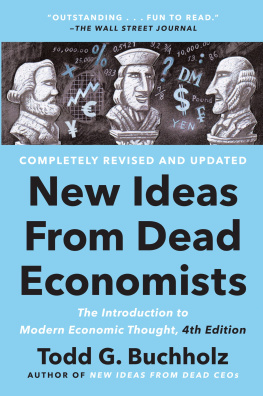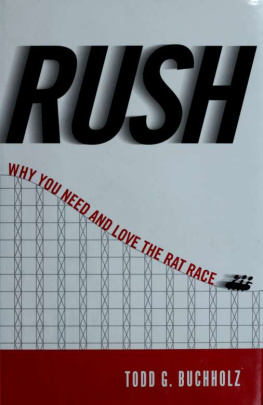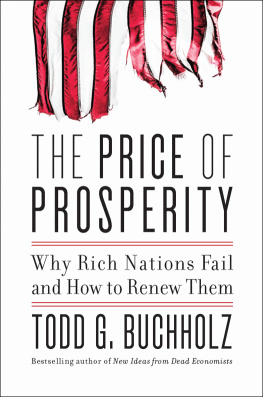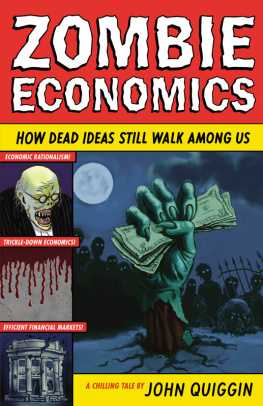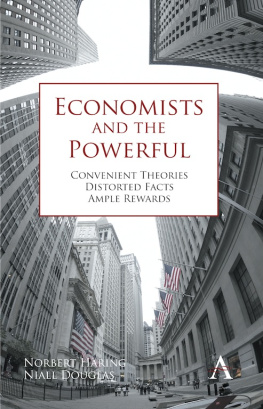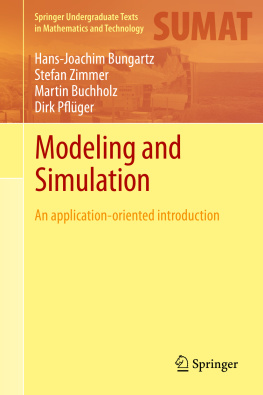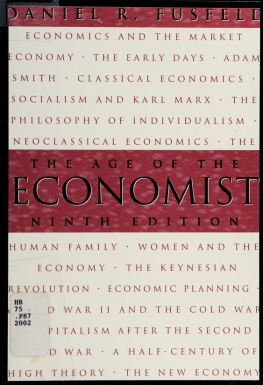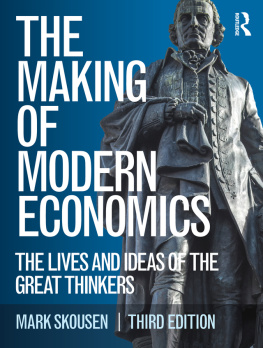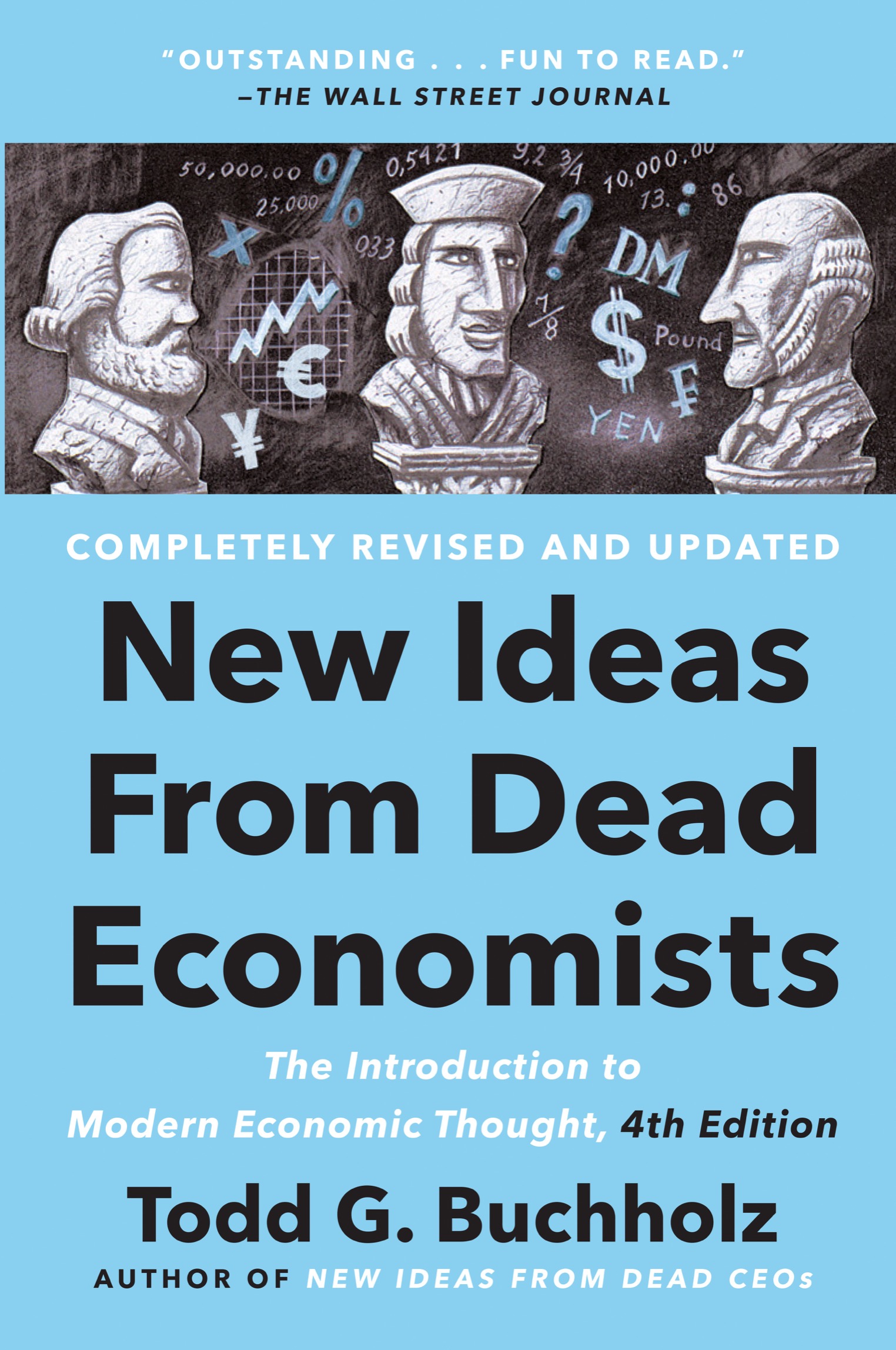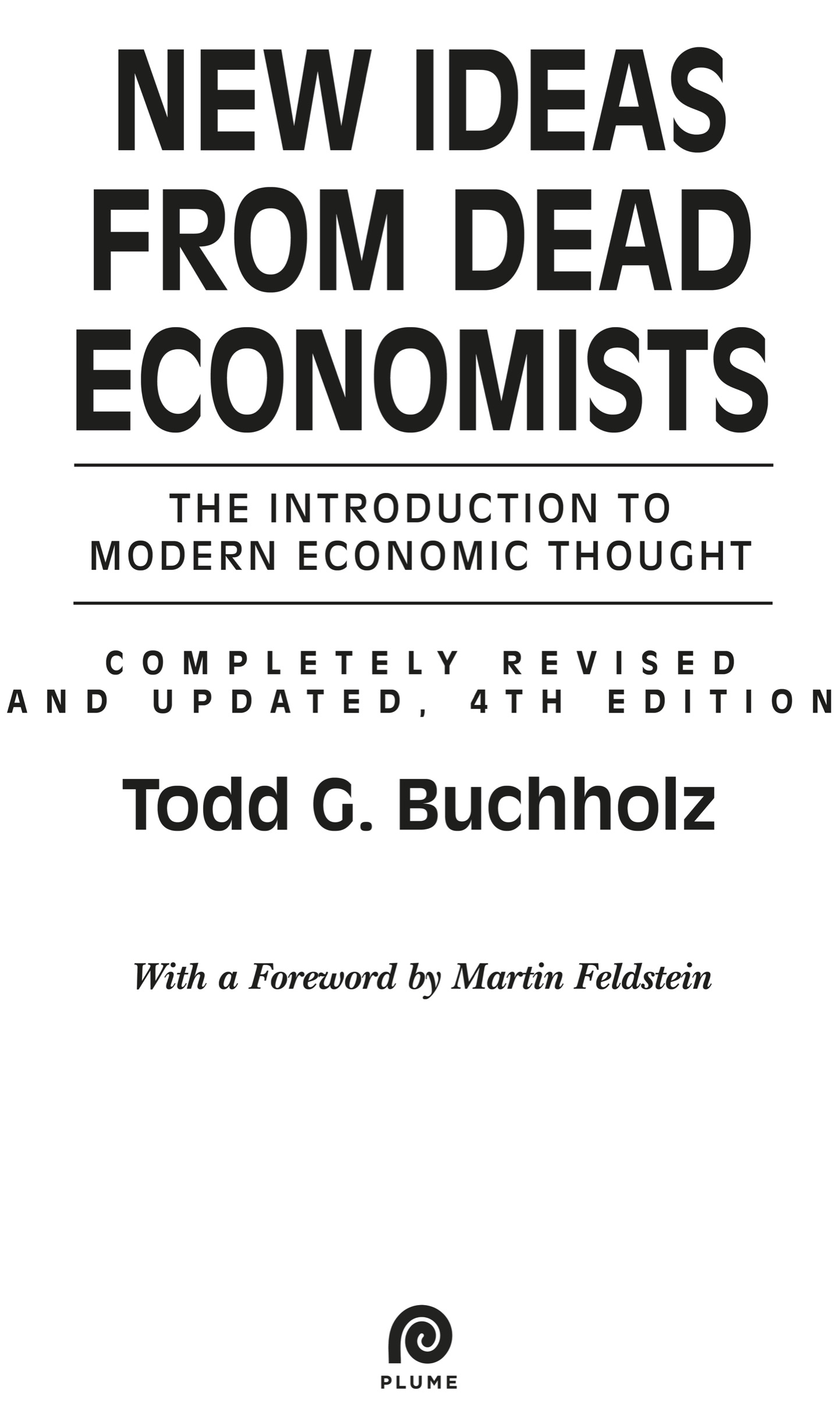Praise for New Ideas from Dead Economists
If you only read one economics book this year, read this one.
Lawrence H. Summers, former U.S. Treasury secretary, professor of political economy, Harvard University
Readable... enjoyable... valuable to the lay reader who wishes to speak intelligently about economics and world markets.
National Review
A first-class book.
Christian Science Monitor
Witty... accessible... a history of economic thought that wont scare even the worst econophobes.
Phoenix Republic
A sorely needed and well-written guide to the still-living ideas that fashion our prosperity.
Alfred L. Malabre Jr., author of Understanding the New Economy
Lights up economics with a wickedly sparkling wit.
Associated Press
An excellent review of contemporary macroeconomic theories and issues.... It does not get any better than this.
Choice
Effective and entertaining... highly recommended.
Library Journal
Successfully puts a wide range of economic theories and philosophies into an understandable, everyday perspective.
Booklist
Also by Todd G. Buchholz
Nonfiction
New Ideas from Dead CEOs
The Price of Prosperity
Rush
From Here to Economy
Market Shock
Bringing the Jobs Home
Fiction
The Castro Gene

PLUME
An imprint of Penguin Random House LLC
penguinrandomhouse.com

Copyright 1989, 1999, 2007, 2021 by Todd G. Buchholz
Foreword copyright 1989 by Martin Feldstein
Penguin supports copyright. Copyright fuels creativity, encourages diverse voices, promotes free speech, and creates a vibrant culture. Thank you for buying an authorized edition of this book and for complying with copyright laws by not reproducing, scanning, or distributing any part of it in any form without permission. You are supporting writers and allowing Penguin to continue to publish books for every reader.
Plume and its colophon are registered trademarks of Penguin Random House LLC.
Library of Congress Cataloging-in-Publication Data
Names: Buchholz, Todd G., author.
Title: New ideas from dead economists: the introduction to modern economic thought, 4th edition / Todd G. Buchholz.
Description: Completely revised and updated. | New York: Plume, Penguin Random House LLC, 2021. | Revised edition of the authors New ideas from dead economists, c2007.
Identifiers: LCCN 2020041051 (print) | LCCN 2020041052 (ebook) | ISBN 9780593183540 (paperback) | ISBN 9780593183557 (ebook)
Subjects: LCSH: EconomistsBiography. | EconomicsHistory.
Classification: LCC HB76.B83 2021 (print) | LCC HB76 (ebook) | DDC 330.092/2dc23
LC record available at https://lccn.loc.gov/2020041051
LC ebook record available at https://lccn.loc.gov/2020041052
First Plume hardcover edition: December 1989
First Plume trade paperback edition: December 1990
First Plume trade paperback edition ISBN: 9780452265332
pid_prh_5.6.1_c0_r0
Contents
Preface to the Revised Edition
Vincent van Gogh painted twenty-eight portraits of himself in just two years! I have avoided such introspection and have managed to keep both ears attached to my head. I had not read New Ideas from Dead Economists since early 1989, when I delivered a manuscript to the offices of E. P. Dutton for its hardcover debut. I suppose some authors reread their works often, reminiscing about a skillful turn of phrase or prescient thought. Rather than reread my work, I continually watched the world economy over the subsequent years to see how the books ideas and the great economists ideas held up. This newly revised edition benefits from a careful study of economic trends and crises from my perch as a White House economist, Wall Street adviser, investment fund managerand father. I was none of those when I drafted the first edition.
The world has changed in staggering ways. Mostly for the good. New medicines, new technologies, more jobs, less inflation, and less crime have blessed the United States. In 1989, we had no Internet, no anti-baldness drugs, few automobile airbags, and no hope that the jobless rate could plunge below 5 percent or that U.S. stock prices would more than triple during the 1990s and then jump by another 75 percent in the early 2000s (with some cliff-hanging moments along the way). The pandemic in 2020 did not bring massive bank failures and soup kitchens like the Great Depression of the 1930s did, but instead a Great Cessation as people were forced to stay in their homes and away from shops and friends.
In the years since the first edition, we have also witnessed a phenomenon I call the scissors economy. Technology has permitted Americans to cut out the middleman from many purchases. Who needs a stockbroker or an insurance agent when the Internet allows people to comparison shop? You can buy a sockeye salmon direct from Alaska within seconds or an airplane ticket to Timbuktu. Consumers have more control than ever before and can customize purchases with an ease that only a prince or a potentate could have afforded in past epochs. Even bespoke dog food can be ordered online, tailored for a hounds age, weight, fur type, and preference for poultry, bison, or vegan protein.
In a tech-driven economy, consumers spend more of their income on digital products like video games and streaming entertainment. Digital products often have zero marginal cost, meaning the seller does not pay much to make an extra copy. In past eras, vinyl records, cassette tapes, and CDs were made up of advanced plastics, pressed and assembled by machines, and then shipped to stores. Every time a music studio churned out another record, it spent money on raw materials, processing, and shipping. Today, when artists invite you to download a tune, your extra download costs them virtually nothing. Of course, plenty of resources may go into the initial creation of an item. I co-founded an educational software company that makes math games for children based on the Math Arrow matrix. Designing the game, writing software code, and hiring cartoonists to draw Kyle the Kangaroo cost a great deal. But when a parent or child downloads the game to play, it costs the company very little. This model is vastly different from what Adam Smith, our first great economist, encountered in 1776. He observed a pin factory, not bytes zooming through a digital stream.
Across the United States, old monopolistic utilities have broken down as cable, satellites, fiber-optic, and wireless technologies compete for your television, smartphone, and streaming business. Every time your eye catches the glint of a rooftop solar panel on a home, a centralized power company sheds a tear. A striking advertisement once appeared in the Washington, D.C., area, touting a new telecommunications company. Posters displayed a statue of Lenin with a rope around his neck and the headline No Empire Lasts ForeverEspecially One That Keeps You Waiting 5 Hours for a Repairman.

